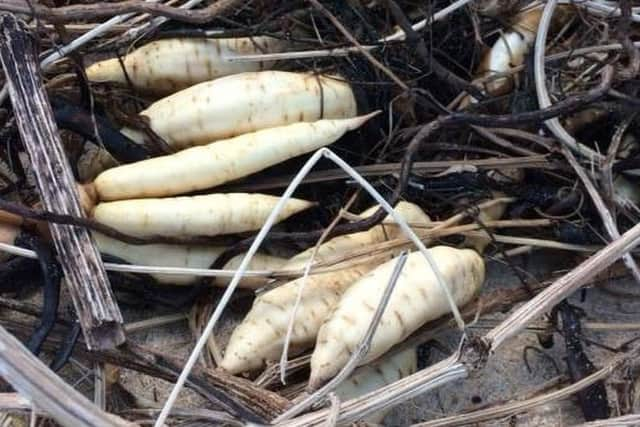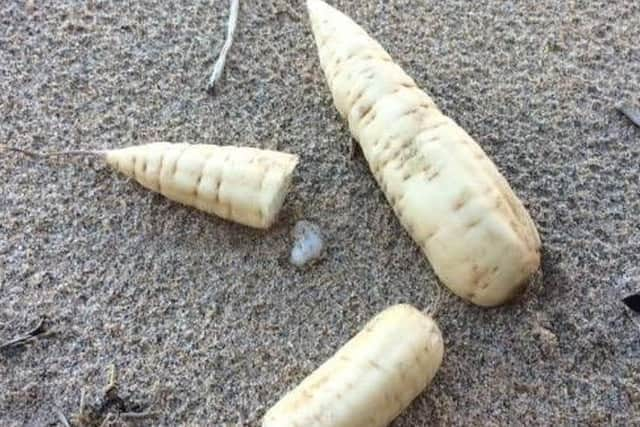Beware deadly 'parsnips' washed up on Fylde coast beaches
and live on Freeview channel 276
The smallest trace of hemlock water dropwort can prove quickly fatal to both humans and animals. If left untreated, symptoms of ingesting the root include nausea, vomiting, seizures, hallucinations, breathing troubles, and eventually death.
A suspected sighting of the deadly root was reported at Rossall Beach on Sunday.


Advertisement
Hide AdAdvertisement
Hide AdA Wyre Council spokesman said: "A sighting of ‘hemlock’ has been reported to our officers. This plant, with roots that look a lot like parsnips, is extremely dangerous when ingested. Whilst we try to keep our beaches clean and safe, dangerous items can wash up and we ask members of the public to report any further sightings and any other unusual items to us by calling 01253 891000.”
The discovery followed warnings from the Millom Coastguard Rescue Team in south-west Cumbria on November 1.
A spokesman said: "Please be aware that we have received reports of a highly poisonous plant being washed up on local beaches. So far there have been confirmed sightings at Millom and St Bees.
"Hemlock Water Dropwort (Oenanthe crocata), also known as Dead Man’s Fingers... Even a small portion can prove fatal to humans by attacking the nervous system. It is also fatal to animals. The plant has a highly poisonous root that looks, and smells, like parsnip.


Advertisement
Hide AdAdvertisement
Hide Ad"It is highly likely that this is happening due to the aftermath of recent stormy weather. We advise people, especially with children and animals, to stay vigilant, avoid this plant and take extra care when visiting the beach."
Thanks for reading. If you value what we do and are able to support us, a digital subscription is just £1 for your first month. Try us today by clicking here.
Comment Guidelines
National World encourages reader discussion on our stories. User feedback, insights and back-and-forth exchanges add a rich layer of context to reporting. Please review our Community Guidelines before commenting.
